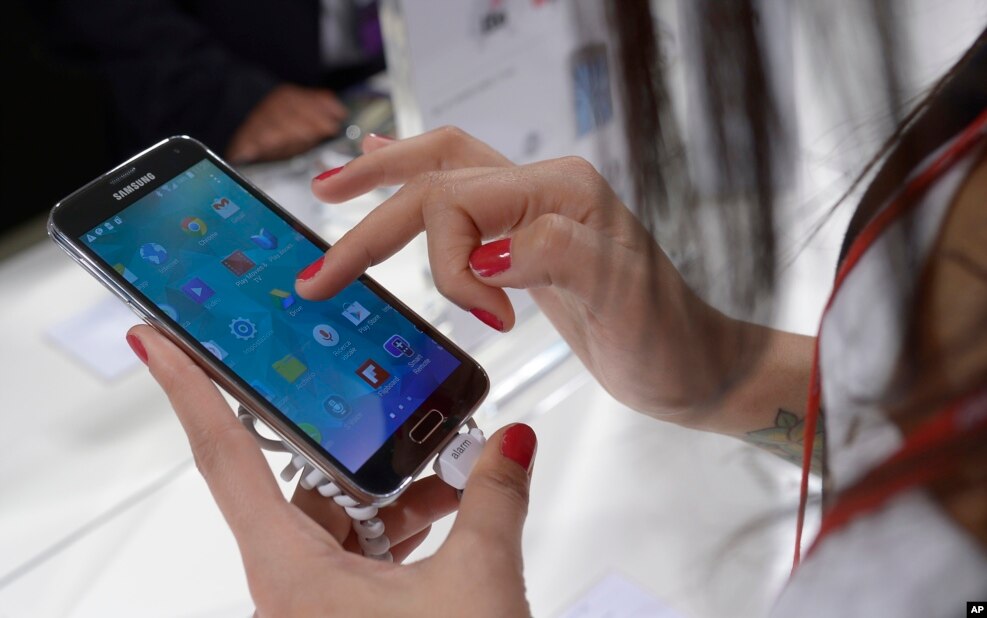
Forget the chocolates, flowers and jewelry.
This Valentine's Day, February 14, perhaps the best gift you can give the love of your life is your undivided attention. Sadly, for many of us, that is easier said than done.
An international study of more than 13,000 adults found that many people say modern technology has affected relations with their partner. Almost 40 percent of those questioned said their partner paid more attention to their mobile device than to them.
Intel Security Group, a private company, paid for the study. It examined how romantic relationships are affected by a person's use of social media and the Internet.
The research included both old and new relationships. Thirty-three percent of those asked reported that they had to compete against a mobile device for attention on a first date.
Apparently, we have as much love for our digital devices as for the people we love. Intel's survey found that adults spend almost equal amounts of time online at home as they do interacting directly.
And a lot of married couples, friends and family members argue about time spent on mobile devices.
Gary Davis is the chief consumer security officer at Intel Security. He says recognition of our electronic device involvement is important.
“If you have a pattern where you're at dinner, you're out on a date, you're home having a quiet evening, maybe watching a show, or just enjoying a fire…and a device comes into play, it's that awkward thing that I don't think enough people think about. And when they don't think about it, they don't understand the wear and tear it's causing on the relationship.”
Edward Spector holds a similar opinion.
“We're not thoughtfully progressing in terms of how we're using technology.”
Spector works as a psychologist in Bethesda, Maryland. He studies human behavior, and specializes in technology dependence.
"So, we have to be thoughtful about the consequences of connecting to a particular social network, or allowing yourself to have the habit of the last hour and a half of your evening be checking your Facebook, or always responding to a text immediately."
Rules or time limits on a device might be good, in theory. However, Intel's survey found that 45 percent of those questioned do not set rules. Another 45 percent said they got into arguments about how much they are on their phones when spending time with loved ones.
The lack of social rules about digital behavior might be the result of the newness of the issue.
Past generations did not have the technologies, said psychologist Spector.
“In this situation, our elders know nothing. In fact, the knowledge and competence is moving towards the youngest generation that's using the technology because they're the ones bounding forward fearlessly, and finding out what ways you can get in trouble.”
That trouble may include the sharing of sensitive information. Intel's research found nearly 30 percent of couples share passwords to social media sites. This could be a problem when relationships end.
Intel's Gary Davis advises that people step away from electronic devices to truly connect with other people.
“Understand the value of distancing yourself from your device and allow yourself to be engaged with that person that means the most to you,” said Davis.
I'm Caty Weaver.
VOA's Tina Trinh reported this story from New York. Caty Weaver adapted her report for Learning English. George Grow was the editor.
Words in This Story
romantic - adj. relating to love between two people
date - n. an agreement to meet someone at a particular time or on a particular day
pattern - n. something that happen in a regular and repeated way
awkward - adj. not graceful
wear and tear - expression : damage that occurs naturally
particular - adj. used to indicate one specific person or thing
allow - v. permit
habit - n. a usual way of behaving
competence - n. the ability to do something well
bound - v. to move with long, energetic steps
engage - v. to get and keep someone's attention



